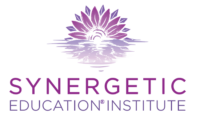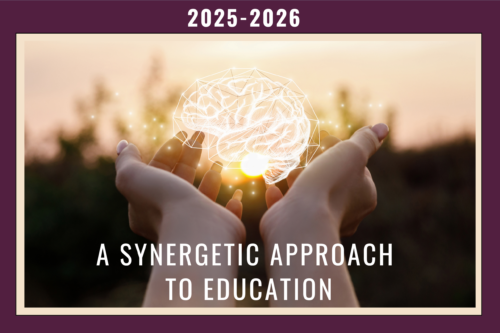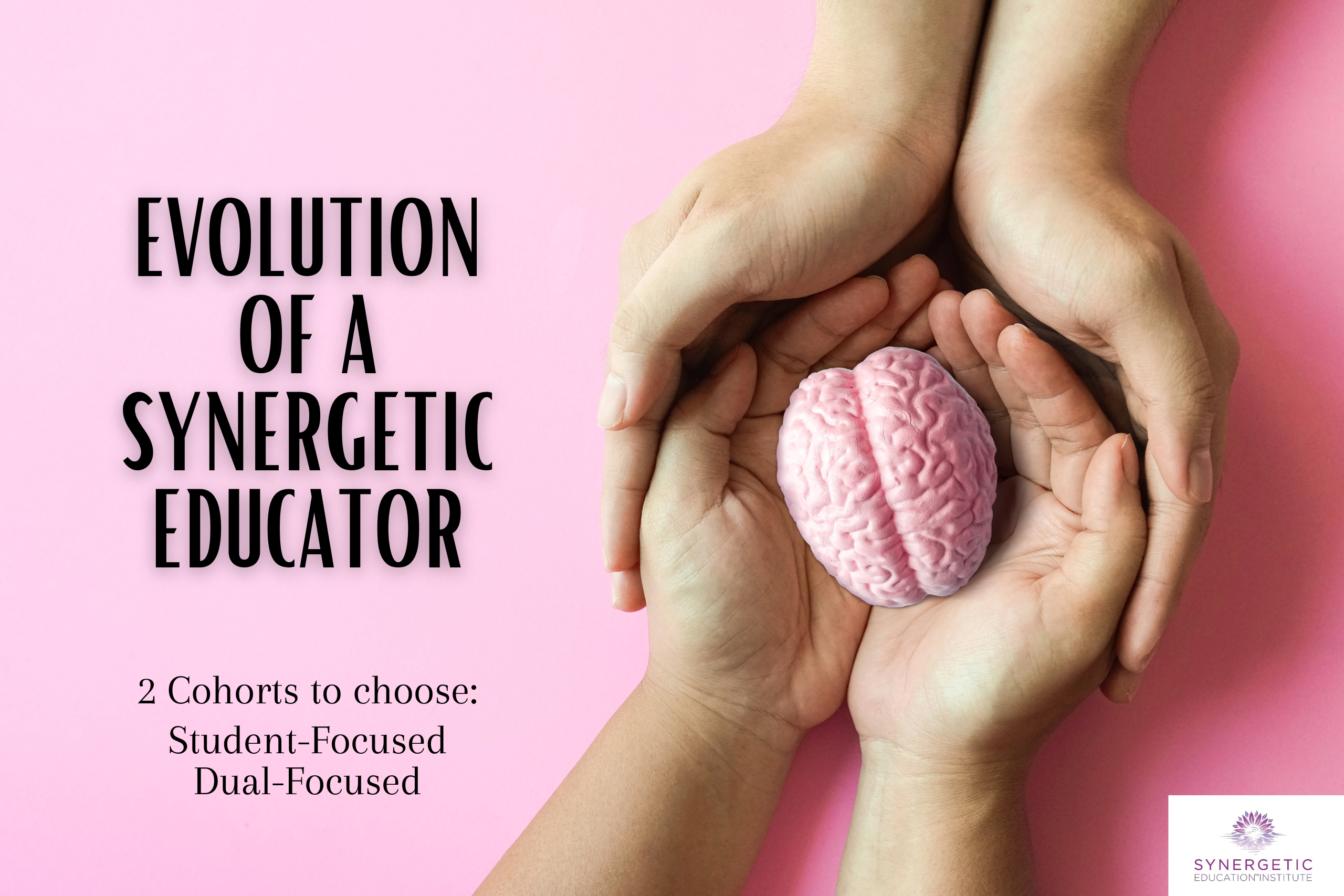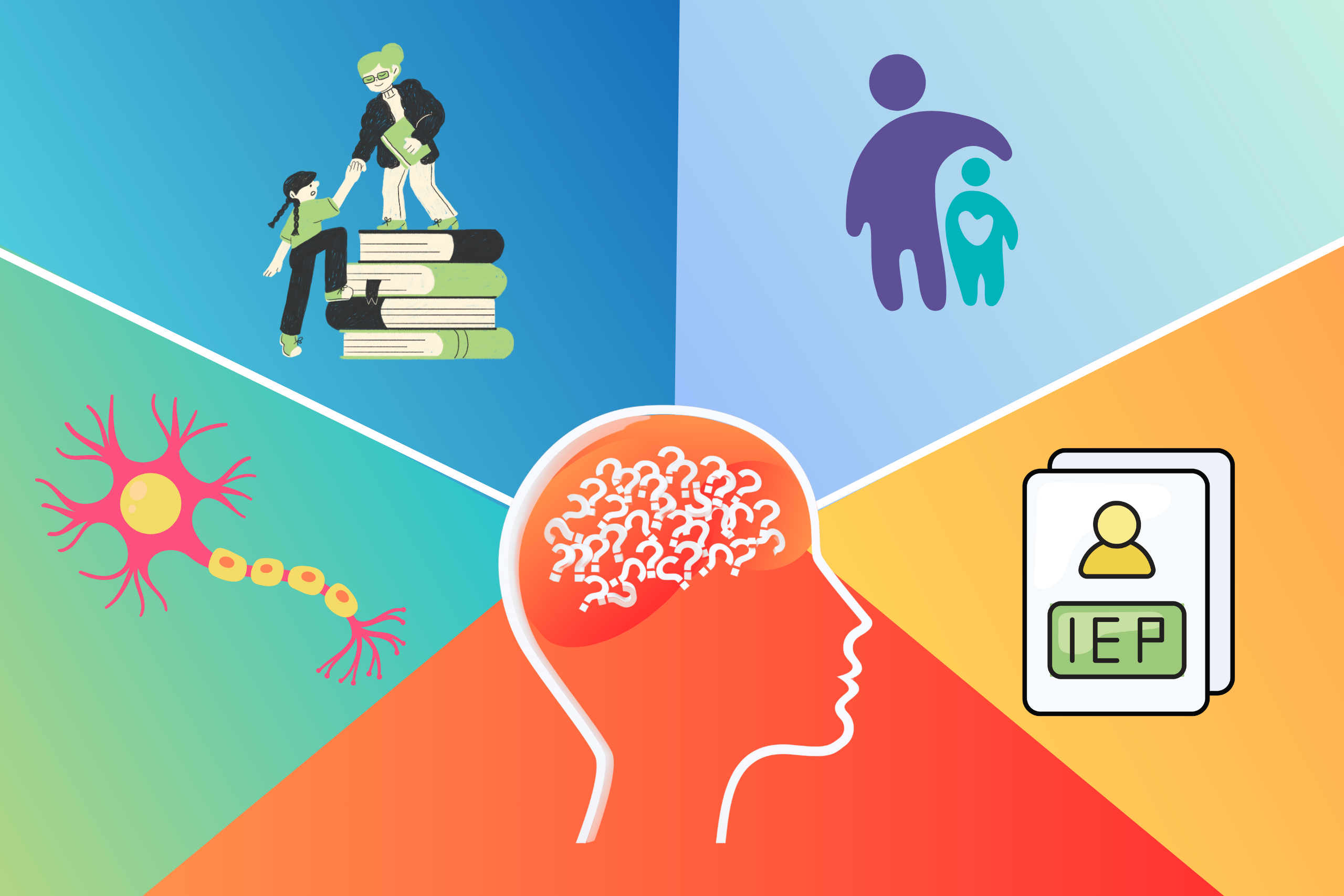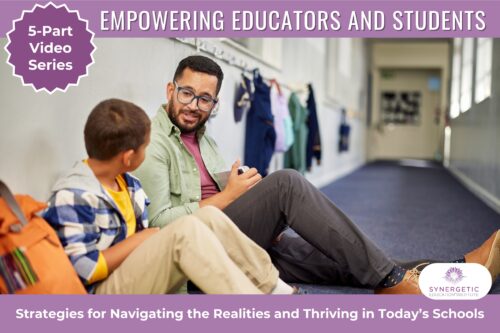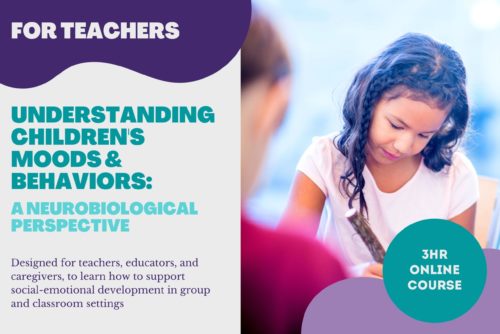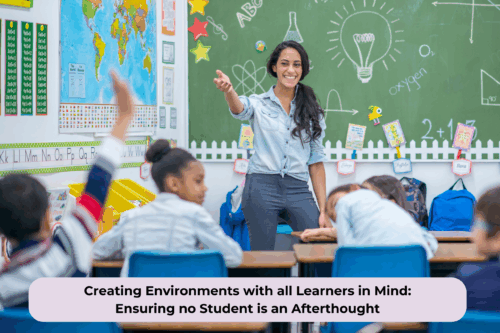Registration Deadline is October 28, 2025, 12pm MST
Are you a school-based mental health professional questioning how to truly support students struggling with challenging behaviors? Or maybe, you’re finding yourself stuck between educational demands and the real needs of your students? Or perhaps you’re trained in Synergetic Play Therapy and looking for ways to bring your SPT skills into schools or educational settings to make a deeper impact? A Synergetic Approach to Education is here to bridge that gap, offering you practical, neuroscience-backed strategies that are not just “another thing on your or others’ plates,” but tools to transform your approach to classroom regulation and student engagement. How Is This Different from Other Programs? Unlike traditional educational programs that often overlook the link between mental health and classroom dynamics, our approach integrates decades of experience working at the intersection of education and mental health. This isn’t just about adding new techniques—it’s about fundamentally reshaping how you understand and respond to student behaviors. You’ll learn to implement small but powerful shifts in daily routines that prepare brains and bodies to learn, helping educators see beyond surface-level behaviors to the neurophysiological states driving them. What Does This Have to Do with SPT? Rooted in Synergetic Play Therapy principles, this program extends the insights of SPT into the classroom, giving you what you need to empower educators to become external regulators who support students in real time. You’ll discover how to translate the SPT model’s emphasis on regulation, curiosity, and connection into practical strategies that fit naturally into classroom settings. Our unique lens helps educators see their own roles in student dynamics, fostering environments of safety, belonging, and co-regulation that elevate everyone. What Will You Learn That Makes Us Different?- Identify Missing Pieces in School Programs: Discover critical components often absent from current school approaches that keep students stuck in challenging behaviors and learn how to explicitly teach educators how to prepare brains and bodies to learn with “top-down” and “bottom-up” approaches.
- Model Classroom-Wide Regulation: Learn how to demonstrate regulation strategies that benefit all students and teachers, without adding extra workload.
- Understand Underlying Issues: Help educators recognize the deeper dynamics affecting classroom behaviors in ways that make sense to them, making their interventions more effective and sustainable.
- Tailor Supports to Educators' Realities: Establish practical approaches that account for differing student needs while ensuring educators can implement them seamlessly in their classrooms.
- Address Barriers with Curiosity: Tackle common challenges educators face and empower them to engage with these difficulties using a mindset of curiosity rather than resistance.
- Prepare Brains and Bodies to Learn: Gain tools to articulate the connection between neurophysiological states and behaviors, equipping educators to support students more effectively.
- Practical, Scalable Strategies: Implement classroom-wide regulation that supports every student and doesn’t feel like “one more thing.”
- Deeper Understanding of Behavior Dynamics: Uncover the root causes of challenging student behaviors and learn how to guide educators in addressing them.
- Empowerment to Transform Classrooms: Use the principles of SPT to create regulatory environments that allow for dynamic, individualized support.
- Collaboration and Connection: Model how to balance support and challenge, cultivating resilience in educators and students alike.
- Online or In-Person Introduction to Synergetic Play Therapy® program
- Six-Day Synergetic Play Therapy® Intensive Training (no longer offered)
- Synergetic Play Therapy® Supplemental Course (no longer offered)
